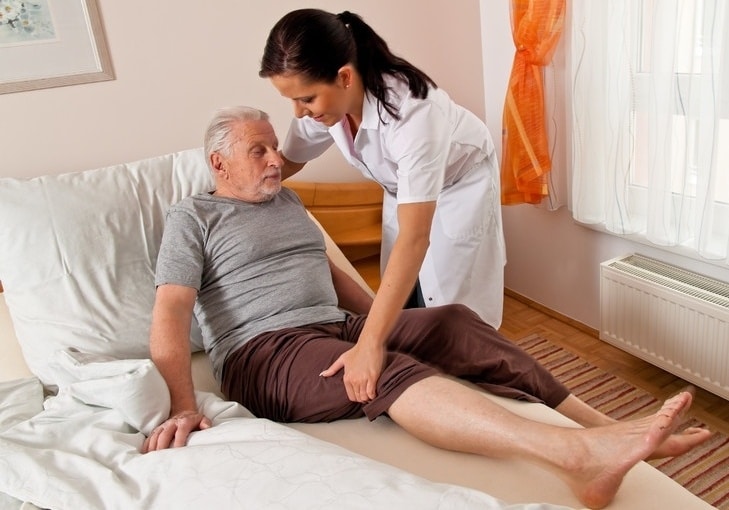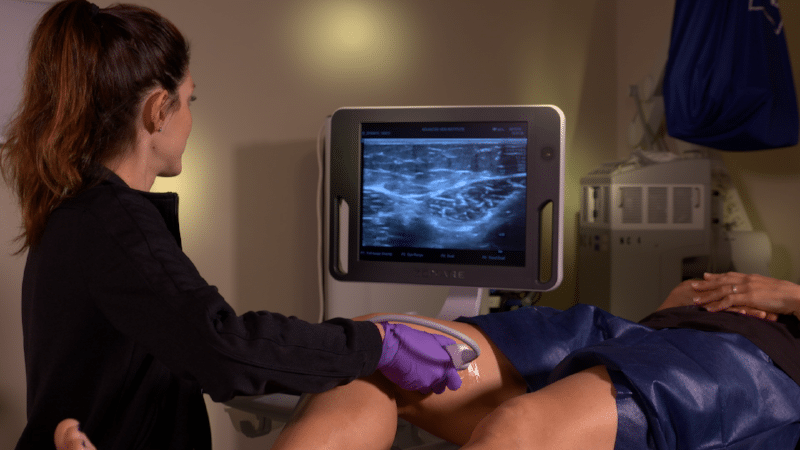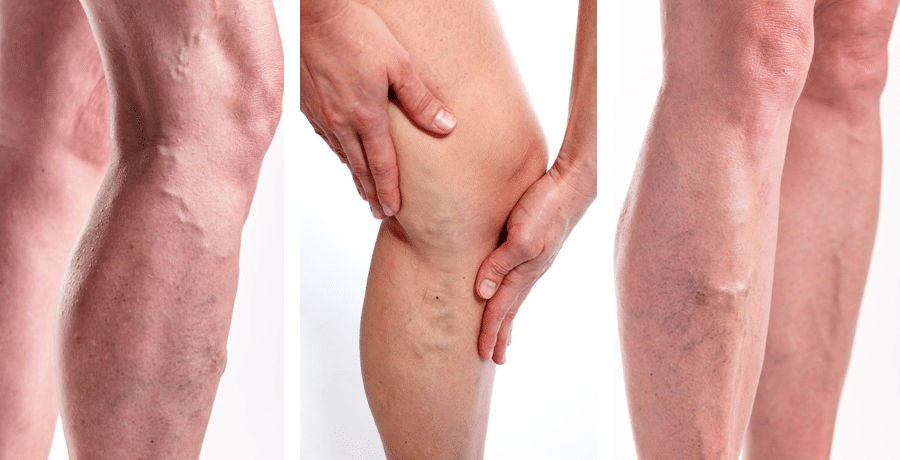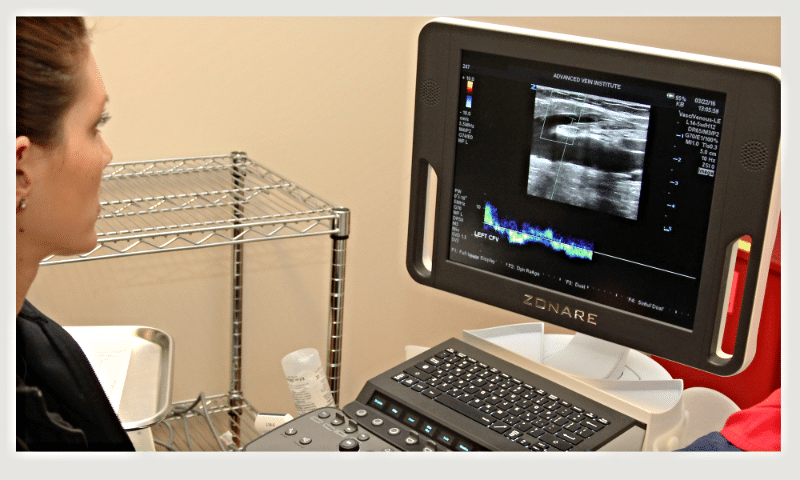Care for Nurses with Chronic Venous Insufficiency

It can hurt to care--just ask any nurse.
As a profession, nurses experience some of the highest rates of varicose veins and Chronic Venous Insufficiency (CVI) in the country. In fact, in one study by the NIH, 63 per cent of participating nurses were shown to have at least one sign of CVI.
Nurses will know that it is important to diligently practice self-care in order to minimize the discomfort of this condition. Elevating the legs, compression stockings, and engaging in calf muscle-contracting exercises such as walking are just some of the home care remedies that can provide occasional relief. As a chronic and progressive condition, the pain, fatigue and other symptoms caused by CVI are likely to worsen.
Fortunately, there are other minimally invasive treatment options that can bring relief from the pain of CVI and varicose veins. If you live and work with any of these symptoms , consider consulting a qualified vein specialist soon to ensure your vascular health is not at risk, and to learn about a treatment plan that is tailored for you.
In the meantime, compression stockings helps if you stand or sit for long periods of time. However, be careful with calf sleeves as they can sometimes cause swelling in the feet because they typically end at the ankle.
CVI risk factors for nurses
There are a number of reasons why nurses are at particular risk for development and progression of CVI. The first reason is their job requires that they stand for long periods; basically, gravity takes its toll. Activities that require standing (or even sitting) for extended periods deprive the body of the benefits of the strong calf muscle contractions produced while walking. This means the heart has to work a lot harder to push the blood through the legs and back up for reoxygenation and recirculation. Over time, the vascular system wearies and becomes less efficient.
The physical strain of the occupation is another notable contributor to the development of CVI. Nurses work long hours, carry out very physical labor, and often perform shift work. This can affect sleep and eating schedules, and these factors can have a negative effect on health, generally, leading to conditions such as insomnia and overweight.
Another factor is gender. Women dominate nursing, and estrogen, oral contraceptives and hormone replacements are known to contribute to the weakening of blood vessel walls. This stretch in blood vessels means more bulging and less efficient return of blood.
Help for nurses with CVI
The good news is that there are qualified vein specialists who care about the wellbeing of nurses. Jilanne Rose is one such specialist. As a board certified doctorate nurse practitioner, she understands the special needs of nurses. Trained by three top Arizona vein specialists-an interventional cardiologist, a cardiothoracic surgeon, and an interventional radiologist-she has completed over 10,000 peripheral vein procedures, and is known for her compassionate care and exceptional outcomes.
If you are experiencing any of the symptoms of CVI, consider consulting with Jilanne today to find out how she can have you back on your feet and doing the work you love, more comfortably, in remarkably little time.
DVT and Varicose Veins during Pregnancy Pregnancy is a risk factor for the development of a blood clots with an incidence that is 4 to 50 times higher compared to non-pregnant women. Increased risk for development of a blood clot is highest in the postpartum period, with the most common occurrence of clot formation in…
Read MoreDeep Vein Thrombosis and Travel Ready to enjoy some summer time travel? Make sure your trip is not shortened by a serious health concern. Small, cramped seating on an airplane, or sitting in a car for a prolonged period of time, may be more of a problem that just causing discomfort. Inactivity in a confined…
Read MoreIn the second of this educational video series, Jilanne Rose talks about the pain involved in various Varicose Vein Treatments. In some cases it’s negligible! Transcript The ease with which we can eliminate varicose veins depends solely on what type of underlying problems you have. That question can’t be easily answered until after a thorough…
Read MoreWhat is Restless Leg Syndrome Restless leg syndrome (RLS), also called Willis-Ekbom disease (WED), is a common sleep-related movement disorder characterized by an unpleasant urge to move the legs. Symptoms often occur during periods of inactivity; particularly in the evenings. This urge to move is sometimes relieved by moving ones legs. During sleep, most patients’…
Read MoreOur own Dr. Jilanne Rose answers questions on Varicose Veins, Spider Veins, Vein Treatments and Insurance Coverage for Vein Treatment in Arizona. Jilanne is a true Varicose Vein Specialist as she has years of education and has been trained by the top experts in the field. She has performed over 10,000 vein care procedures herself. This is one…
Read MoreRisks of Deep Vein Thrombosis Deep Vein Thrombosis (DVT), also referred to as Deep Venous Thrombosis, is a blood clot located within a deep vein, usually in the leg. A blood clot that breaks free and travels up to the heart or lungs is referred to as a Pulmonary Embolism (PE), which can stop blood…
Read MoreWhat Causes Spider Veins? For many people who suffer from spider veins, one of their biggest questions is “What causes spider veins?” Spider Veins, also known as telangiectasia, are small veins located just under the surface of the skin. Most often found on the leg, they can either be very small and hardly noticeable, or…
Read MoreAre varicose veins covered by insurance? The answer is YES, varicose vein treatment is covered by most commercial insurance carriers such as Blue Cross Blue Shield, Champus, Aetna, Cigna, Humana, Health Net, Tricare, UMR, and UnitedHealthCare to name a few. Medicare and AHCCCS will also cover treatment. Many people only try home treatment for varicose veins…
Read MoreAre all vein clinics created equal? No they are not! Med Spa – You can turn on the television or radio at any time of the day and hear countless advertisements for “quick” or “painless” vein treatments. Go to this clinic or that medspa, and they assure you that your legs will look great in no…
Read MoreAside from conservative therapies for vein insufficiency, when your symptoms get to the point that these no longer work, or you want a more permanent solution, there are several methods to treat vein disease. All of them, regardless of method, aim to improve circulation and minimize symptoms by eliminating the abnormal vein. These methods include…
Read More




